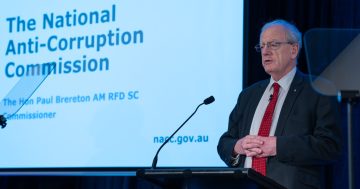 The United Kingdom Government says it will set up a National Security Unit for Public Procurement.
The United Kingdom Government says it will set up a National Security Unit for Public Procurement.
The unit will investigate suppliers who may pose a risk to national security and assess if they should be banned from bidding for Government contracts.
The National Security Unit for Procurement, which will be based in the Cabinet Office, will work across Government, including liaising closely with Intelligence Agencies.
The creation of the team is one of several amendments to procurement legislation currently being debated in Parliament.
Another key change will allow the Government to ban firms deemed to pose a national security risk from bidding in sensitive sectors, while still allowing them to win contracts in non-sensitive areas.
The Government has also committed to publish a timeline for the removal of surveillance equipment produced by companies subject to China’s National Intelligence Law from sensitive Government Agency sites.
Minister for the Cabinet Office, Jeremy Quin said the new measures would protect sensitive sectors from companies which could threaten national security and were a firm deterrence to hostile actors who wished to do Britain harm.
He said the National Security Unit for Procurement would respond swiftly to emerging threats, such as companies looking to win public contracts in order to gain access to sensitive information, or sites which could be used to compromise the Government and society.
“It will also proactively monitor the supplier landscape and make recommendations to Ministers on which suppliers should be investigated for debarment, either from all contracts or from certain areas only,” Mr Quin (pictured) said.
He said a firm could be prevented from bidding for certain types of goods, services or works, or in certain contracting authorities or locations, or for a particular procurement.
The procurement legislation’s overall aims include creating new businesses, jobs and skills; improving supplier diversity, innovation and resilience, tackling climate change and reducing waste.
London, 16 June 2023











